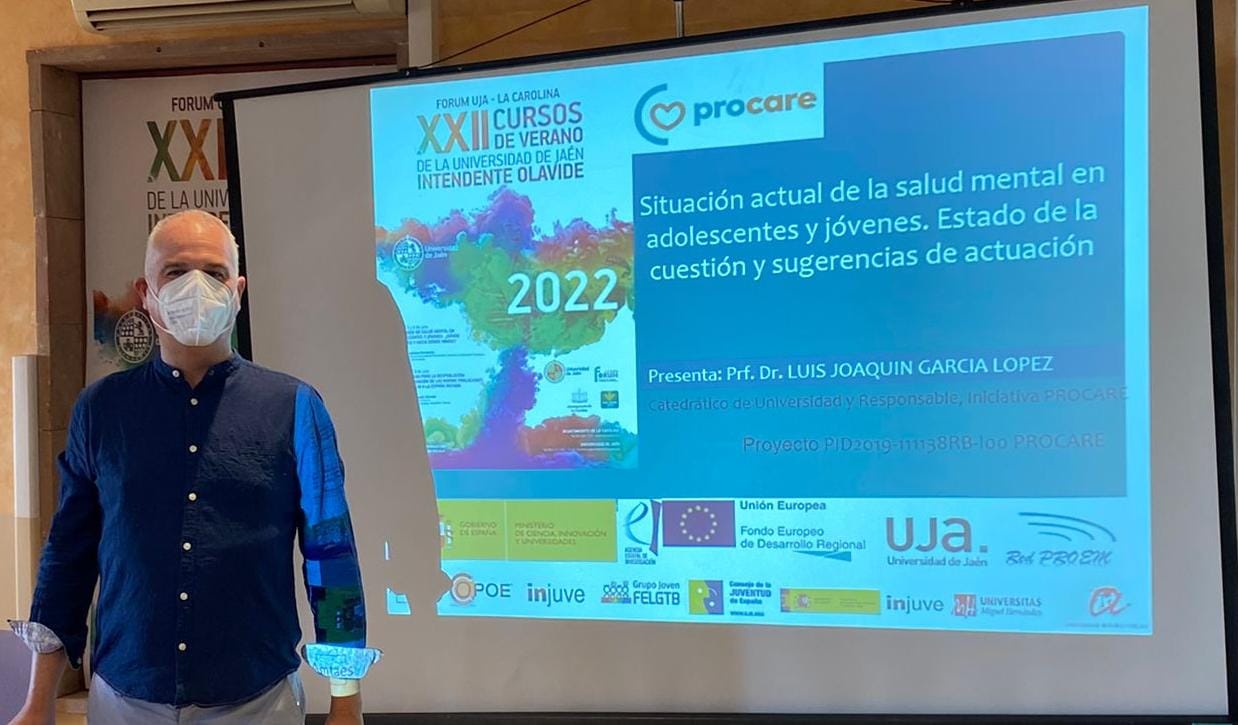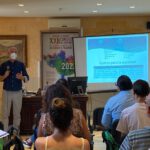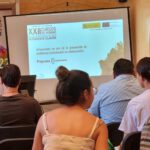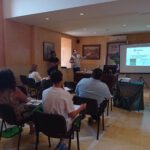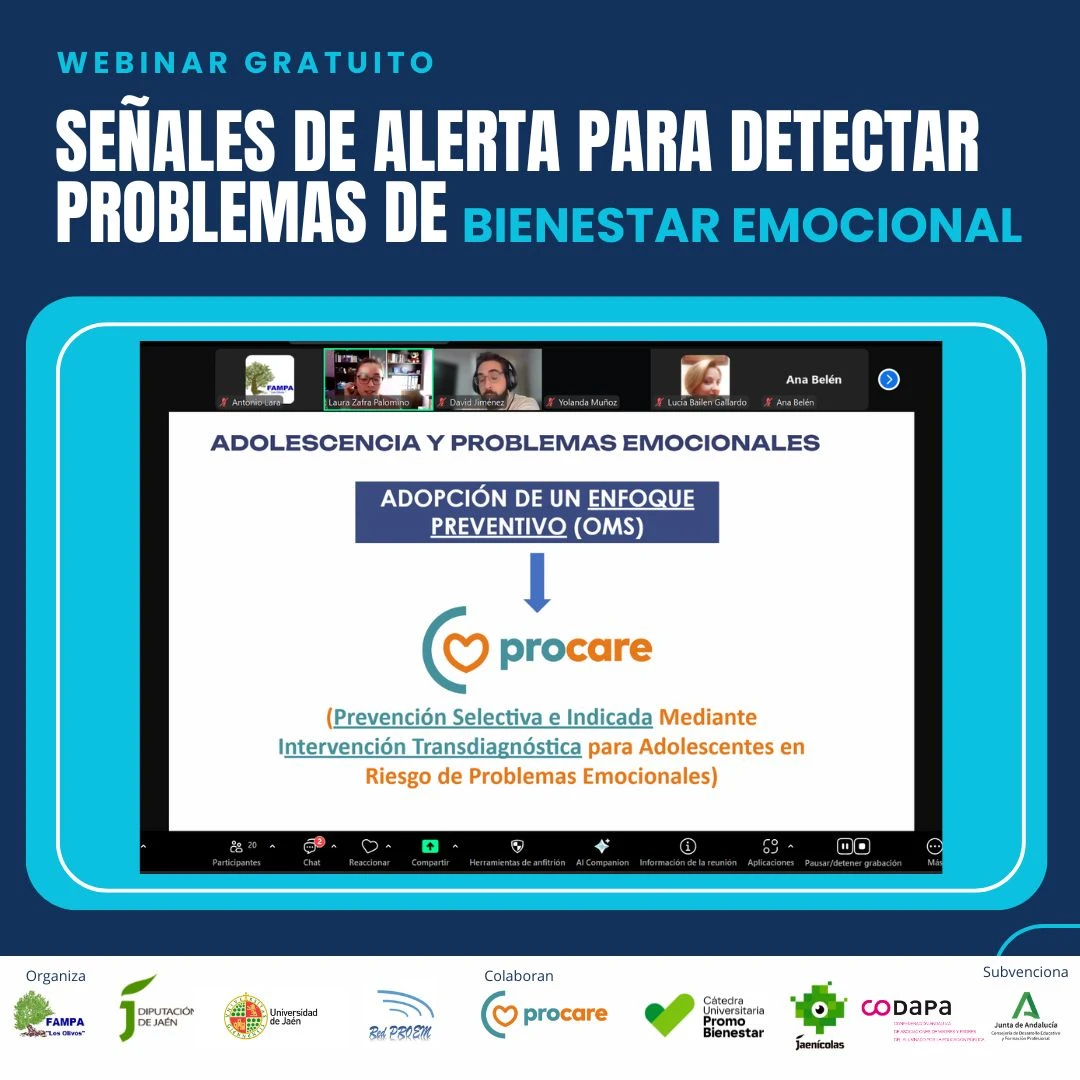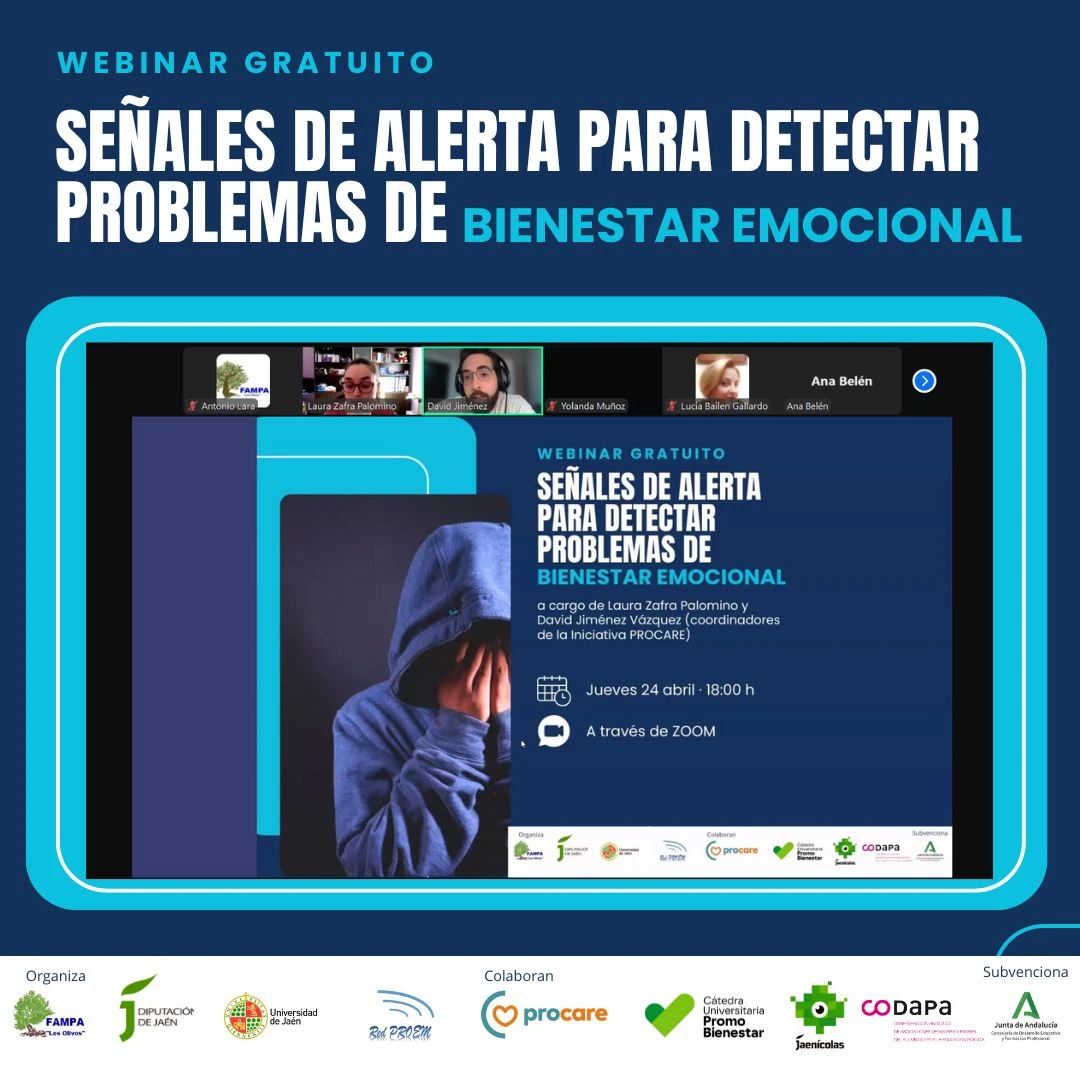This mental health promotion program for vulnerable young people has been the protagonist in the first day of the course “Talking about Mental Health in Adolescents and Young People. Where are we and where are we going?”
5/07/2022.- The results of PROCARE, one of the initiatives to promote mental health in young people led by researchers from the University of Jaén (UJA), were presented yesterday at the beginning of the XXII edition of the Carolina Summer Courses, organized by the UJA. Specifically, PROCARE has been the protagonist of the course entitled “Talking about mental health in adolescents and young people, where are we and where are we going”, directed by the UJA professor, Lourdes Espinosa.
PROCARE is characterized by assessing and providing psychological strategies to emotionally strengthen adolescents between 12 and 18 years old, especially vulnerable population. It is the first transdiagnostic selective prevention program under the framework of personalized medicine that targets young people at risk of suffering emotional problems. During the past year, it provided free help to more than 1,500 schoolchildren throughout the country.
In the first presentation, Luis Joaquín García, professor at the UJA and head of PROCARE, presented the current situation of mental health in adolescents and young people and possible suggestions for action to improve in this regard. In his analysis, Luis Joaquín García commented that “young people are the sector of the population that is currently having the worst time emotionally”. In this regard, he stressed that youth suicide is a major problem, which is already the leading cause of death in the 15-29 age group, ahead of traffic accidents and tumors.
To try to alleviate this situation, he stressed that “a resilient Spain needs resilient citizens. A society has no future without emotionally healthy adolescents. Therefore, it is necessary to invest urgently in promoting the health and emotional well-being of young people through evidence-based interventions”. Along the same lines, he added that “as stated in the Spain 2030 Strategy coordinated by the Spanish Youth Institute (INJUVE), it is necessary to incorporate psychologists in the educational field. It is crucial to structuralize the early detection and intervention of adolescents with (or at risk of suffering) emotional problems in the educational context as well as in the healthcare context”.
In the second presentation, UJA researchers Manuel Vivas and David Jimenez developed the actions for the prevention of emotional problems in adolescents implemented within the PROCARE program. In their presentation, they explained at length the benefits of this initiative within the framework of prevention to make assistance accessible to vulnerable young people and contribute to curb stigmatization at a low cost.
In the afternoon, after the inaugural lecture of the course by the Director General of Public Health of the Ministry of Health, Pilar Aparicio, Manuel Vivas and David Jimenez again gave a workshop in which attendees were able to discover some of the practical activities carried out during the PROCARE program.
Finally, the first day of the course concluded with a presentation by Lourdes Espinosa, who delved into the relationships between parents and children, analyzing the different risk factors and protective factors that are generated in the family environment.
The PROCARE initiative is a project funded by the Ministry of Science and Innovation, which has involved professionals from the Psychology Department of the UJA, the Rovira i Virgili University, the Miguel Hernández University of Elche and the University of Miami (USA). In addition, the Youth Institute (INJUVE) of the Ministry of Social Rights and Agenda 2030, the Spanish Association of Mutual Help against Social Phobia and Anxiety Disorders (AMTAES), the Confederation of Organizations of Psychopedagogy and Guidance of Spain (COPOE), the FELGTBI+ Youth group of the State Federation of Lesbians, Gays, Trans and Bisexuals (FELGTB) and the Youth Council of Spain (CJE) are part of the project’s External Advisory Council.
